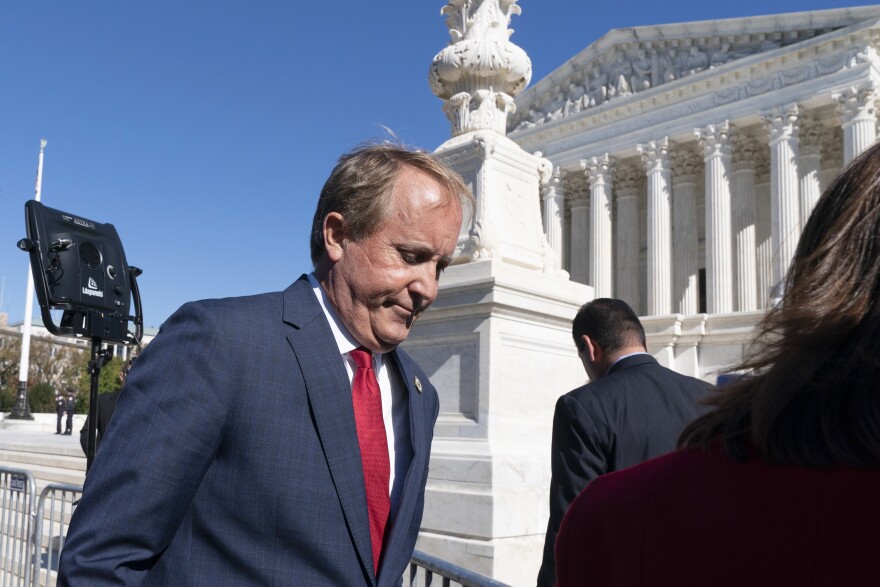Texas Attorney General Ken Paxton wants corporate law firms with Texas offices for details on hiring initiatives meant to increase diversity in the workplace, following a similar request from federal officials last month.
Paxton sent the letters to 20 law firms Thursday along with attorneys general from 11 other states. Thirteen of the firms have offices in Texas but none are headquartered in the state.
The AGs allege the companies may be violating state and federal employment discrimination laws by “touting hiring practices that include diversity fellowships, setting hiring goals with targets for greater representation of minority groups, and DEI programs that entail unlawful disparate treatment in terms, conditions and privileges of employment.” The policies may also violate state deceptive trade practice laws, according to the letter.
“The blatantly illegal employment discrimination perpetuated by law firms and other businesses under un-American DEI ideology must be brought to an immediate and permanent end,” Paxton said in a release. “I am leading the charge at the state level to support President Trump’s efforts to end this insanity and restore equal treatment. Employers should look at qualifications, not quotas, in their hiring decisions.”
It follows Acting Chair of the Equal Employment Opportunity Commission Andrea Lucas — who President Donald Trump appointed to the role — sending similar letters to the same law firms March 17. Both Lucas and the state attorneys general are asking the firms to hand over the information by April 15.
KERA News reached out to the 13 law firms with Texas offices for comment.
The term diversity, equity and inclusion — or DEI — broadly describes initiatives meant to address historical inequities in the workplace and academia. They were enacted largely after a period of racial tension across the country in 2020 following white Minneapolis police officer Derek Chauvin’s murder of George Floyd.
Trump signed an executive order almost immediately after taking office in January condemning DEI policies in hiring practices in the public and private sector. The scrub of DEI policies and entire departments began with government agencies and public schools, then private companies and schools that receive federal funding started getting orders to comply with the administration's rules.
Trump and many Republican leaders nationwide have denounced these kinds of policies as unfairly favoring individuals based on their race, gender or other parts of their identity. Opponents also allege DEI policies violate the Civil Rights Act of 1964, a landmark law that bans discrimination based on race, color, religion, gender, gender identity, sexual orientation and national origin.
But supporters of these policies say they do the exact opposite: By addressing historic discrimination and focusing on a more diverse workforce, companies are less likely to favor one group over another.
The White House last month ordered the EEOC to review the employment practices of “large, influential, or industry leading law firms” to ensure their compliance with the Civil Rights Act. The statement specifically targeted Perkins Coie — the firm that represented Hillary Clinton during her 2016 presidential run — accusing it of racial discrimination in its hiring policies and criticized its ties to Democratic megadonor George Soros.
The firm also confirmed in 2017 it hired the company Fusion GPS to compile a dossier looking into whether the Trump campaign and the Russian government conspired together to influence the 2016 election. The White House ordered federal departments and agencies to revoke security clearance and access to buildings for Perkins Coie employees and review any government contracts with the firm.
Perkins Coie, which has offices in Dallas and Austin, sued the EEOC and other federal agencies shortly afterward.
Got a tip? Email Toluwani Osibamowo at tosibamowo@kera.org. You can follow Toluwani on X @tosibamowo.
Copyright 2025 KERA

